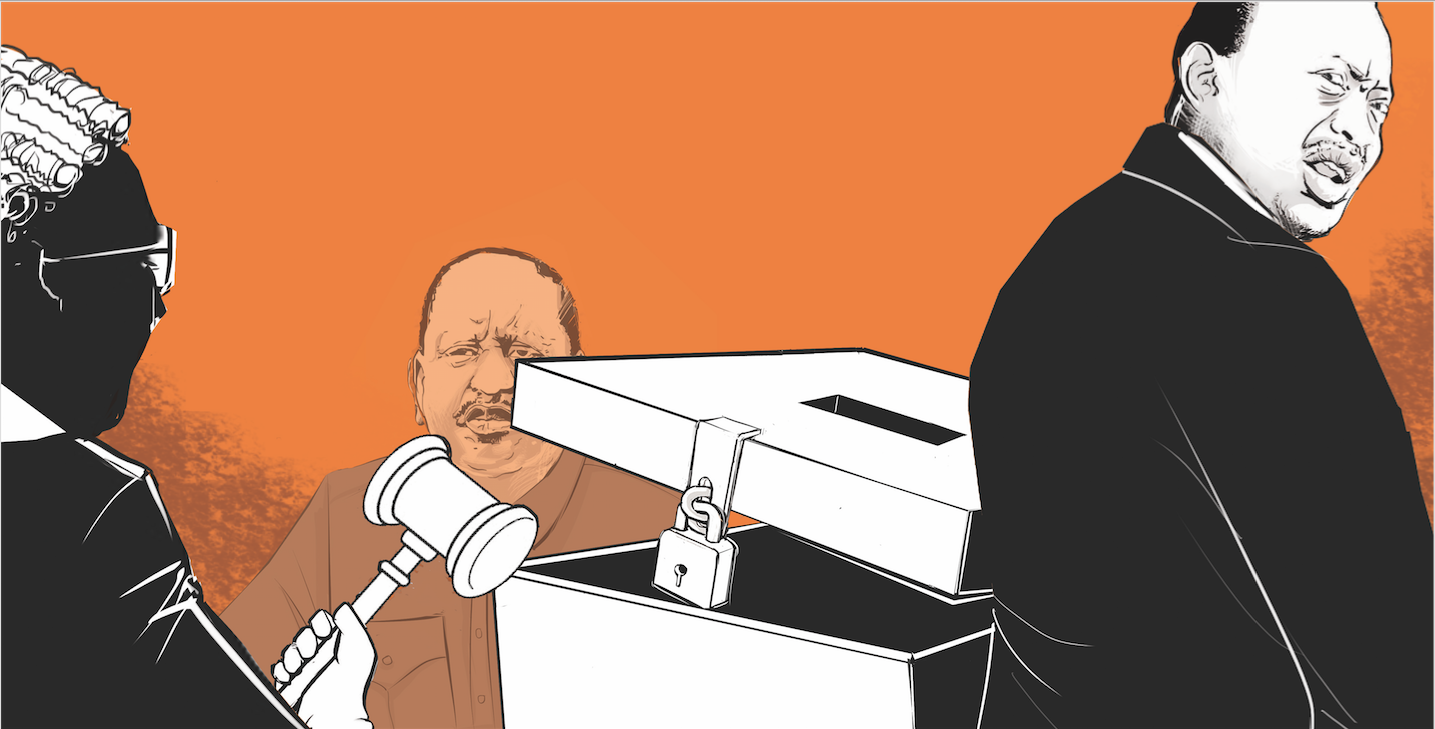

What would you say was Kenya’s finest moment – in all our 60-plus years of independence – when it comes to the principle of “the rule of law”?
No doubt there is room for debate on this. But I would argue that the finest moment was when our president of the time, Uhuru Kenyatta, spoke darkly about “revisiting” matters with the Supreme Court, which had just invalidated his victory in the 2017 presidential election.
What made this a fine moment for the rule of law was that here you had a Kenyan president utterly furious at this unexpected turn of events, but helpless to do anything other than allow for a fresh election as dictated by the Supreme Court.
For even though the 2010 constitution had somehow managed to leave the presidency with most of its wide-ranging imperial powers (and specifically powers more suitable to a colonial-era proconsul than a democratically elected head of state), that constitution had also created a Supreme Court which had the last word on any petitions arising from a presidential election.
And the Supreme Court had spoken.
In the end, things turned out not to be as bad for Uhuru Kenyatta as had initially appeared. The opposition boycotted the repeat poll, and he easily won a second term. More interesting still, not long after his victory, he was to have a terminal falling out with his deputy, William Ruto, and to engage in a historic unity pact “handshake” with his great political rival, the former Prime Minister Raila Odinga.
But aside from such high points in the rule of law for our country, there is the fact that this rule of law is actually supposed to provide something which applies just as much to the ordinary lives of ordinary citizens.
And this compels me to offer a definition of what the rule of law is, in this case by extracting from the ideas of the early 19th-century Austrian economist Friedrich Hayek, who had illuminating views on many things beyond just economics:
“Hayek saw the "rule of law" as fundamental for a free society and nation-state. He emphasised that under the rule of law, all government actions must be bound by general, abstract, and pre-announced rules, which apply equally to everyone, including those in power…For Hayek, the rule of law limits government coercion to enforcement of known rules of just conduct, thereby protecting the individual's freedom to pursue their own purposes within a predictable framework…He also articulated that the laws must be general, equal, and certain, known in advance, and prospective rather than retrospective. This predictability and limitation on arbitrary power make it possible for individuals to exercise their knowledge and skills freely while ensuring fairness and stability in society.”
Quoting the economist Hayek is deliberate, because it brings me to the key point I want to make here. And this is that this “predictable legal framework” which Hayek wrote about, is something concerning which we still have a long way to go. And that its perceived absence is one of the factors that currently prevent Kenya from receiving much greater inflows of Foreign Direct Investment.
Anyone who has spent any time talking to would-be investors in this country will have heard the complaints about how they feel they cannot be certain, if they are buying a piece of land, that the title deed which is subsequently transferred to them is valid.
The existence of a predictable legal framework would presuppose that if you hold the title deed for a specific (and clearly demarcated) parcel of land, yours will be the only such title deed for that land.
The process of creating any title deed should be infallible; and the title itself, inviolate. Only in this way can there be confidence that property rights in Kenya meet the same high standards as those in the investors’ own countries.
I should add that given the current emphasis on all things digital, intellectual property rights are every bit as important as the more mundane property rights.
And more broadly, the rule of law should apply to human rights too.
If the constitution forbade peaceful assembly, that would be one thing.
But since such freedom is expressly provided for in the constitution, then the rule of law requires that leaders put up with it, just as Uhuru Kenyatta accepted the Supreme Court ruling that nullified his initial victory in 2017.













